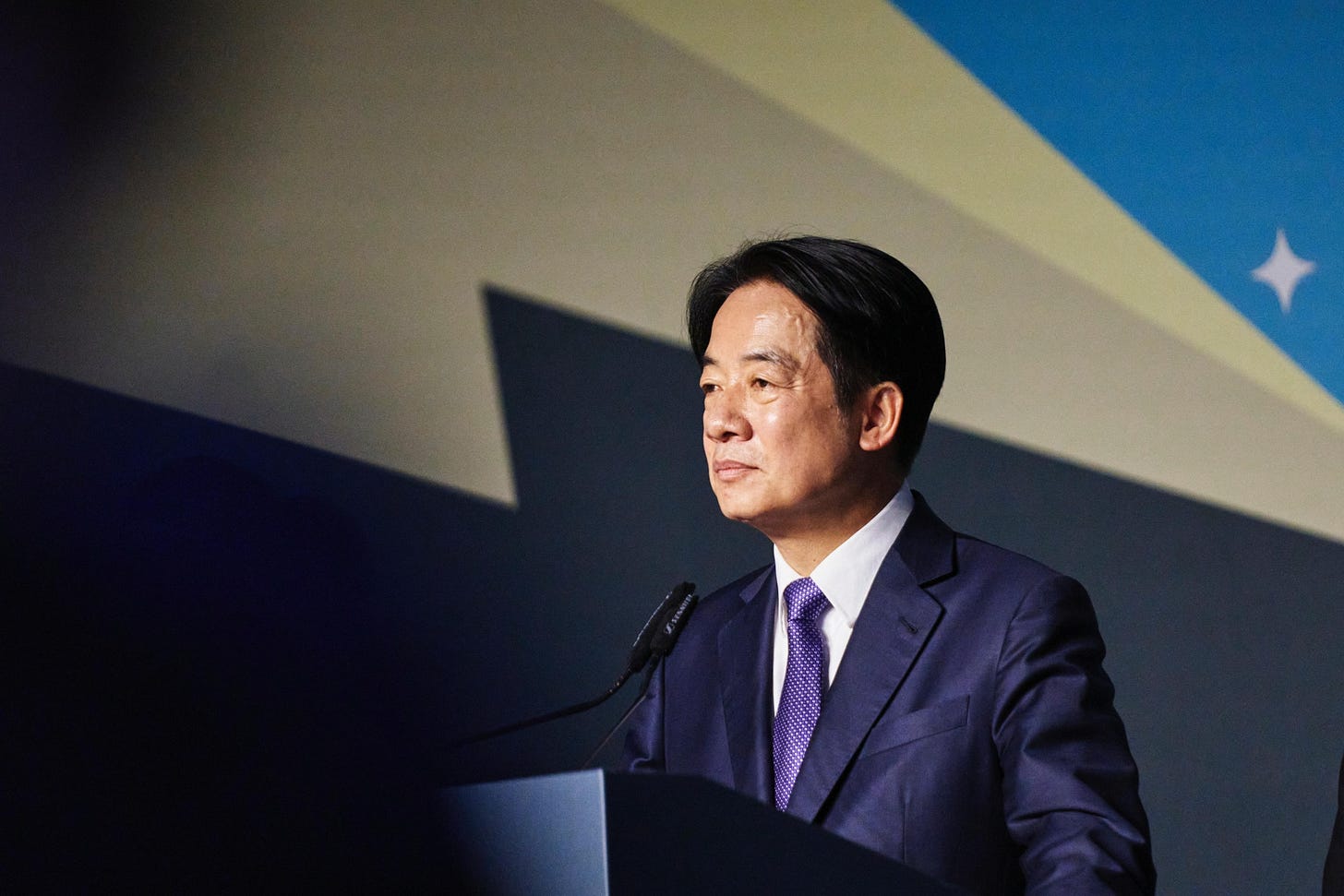China gains in Taiwan's election
What are the ramifications of China's tightening grip over the Indo-Pacific?
Written by foreign policy graduate Percy Spender, find more of his content on 𝕏 @PercySpender
The January 13th Taiwan elections delivered an unprecedented third consecutive term to the Democratic Progressive Party (DPP), the anti-Chinese integration party. Despite winning only 40% of the total vote William Lai, who was the incumbent Vice President, will be sworn in as president. This is the first time that a party has been in power for three consecutive terms. The pro-China integration KMT party secured some gains in the election winning 14 seats within the government legislature, causing DPP to lose its majority. Considering that 60% of the Taiwanese electorate voted for DPP opposition parties, KMT and TPP, who both do not see Taiwan as an independent country and promote cooperation with China, prove that this election is not so much of a loss for China as the mainstream media reported.
Of course, Chinese President Xi Jinping made reunification a primary goal to reach by the mid-century in an infamous speech, declaring that it is a historical inevitability. Many Chinese thinkers believe that Taiwan falling out of Chinese control was a fluke of history due to the weak state it was in and that reunification will naturally occur once China is restored. With this rhetoric, Taiwanese reunification becomes a question of the Chinese Communist Party’s legitimacy as many will view the failure to integrate and continue independence as a failure of the Party itself.
China made sure to rebuke countries that congratulated William Lai on the victory, particularly Singapore and the Philippines, reminding them of their one-China position. The Philippines ambassador was summoned to receive an official reprimand, according to Foreign Ministry Spokesperson Mao Ning;
“Singaporean leaders stated on multiple occasions that the Taiwan question is a deep red line for China. China hopes that Singapore will strictly abide by the one-China principle”.
At the core of all this lies a geopolitical rivalry between China and the United States wherein Taiwanese sovereignty represents a tug-of-war sphere of influence contest between the great powers, a forebodingly similar circumstance to Ukraine in the early 2010s. The biggest question from here is how China will response to this third successive DPP government. China has tried to pressure Taiwan with military exercises, fighter jets circling the island, battleships stationed in surrounding waters, and even missiles launched above Taiwan itself. Many Western pro-China advocates warned that these military demonstrations were overkill and only emboldened independence sentiment in voters.
Many believe China may shift their strategy away from these overt shows of military might and instead impose economic sanctions as punishment on the island’s inhabitants for voting the pro-independence party into power yet again. This is easier said than done. The pro-China KMT party affiliates have extensive, fruitful economic ties with China, which funnily enough was first established by American capital and investors seeking to open trade between the US and China back in the 60s and 70s, by using economic sanctions China will be hurting their KMT allies the most. If Beijing does decide to implement these economic attacks it will have to be incredibly surgical. This predicament casts tension across the entire Indo-Pacific region and only adds further tension to an already fragile US-China relationship.



